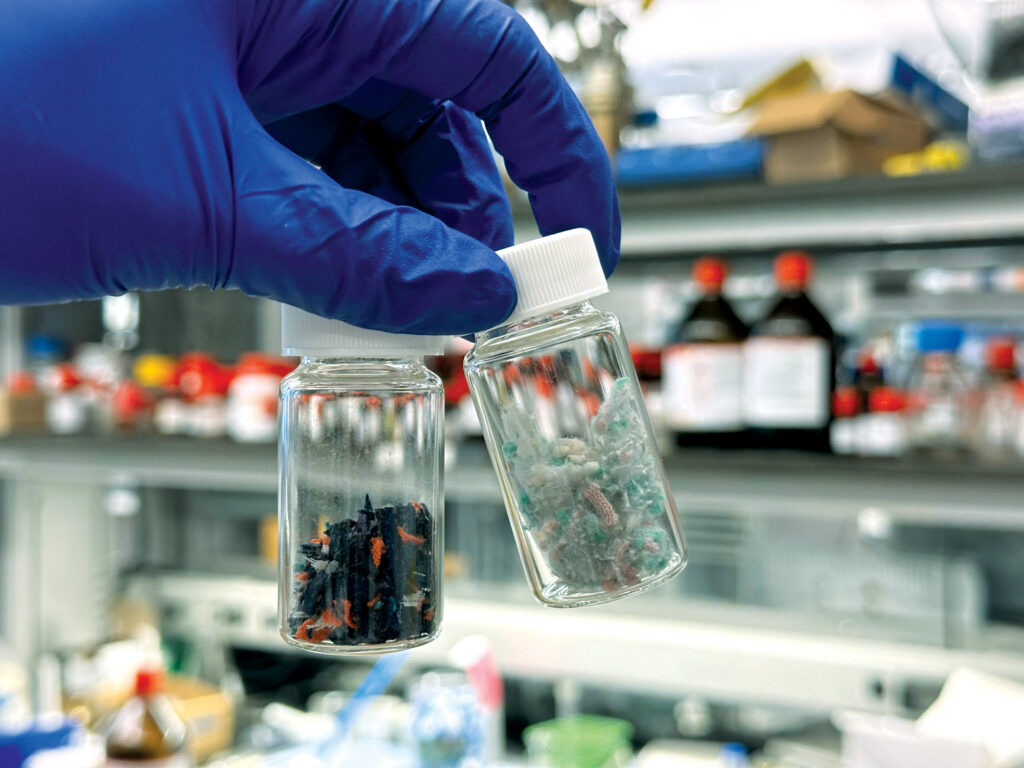
What microwaves do to speed up cooking can also be applied to chemical recycling of mixed fibers. University of Delaware researchers working on postconsumer mixed textile waste found a rapid means of depolymerization—15 minutes—of white polyester and spandex into their monomers using microwave-assisted glycolysis followed by solvent use. Cotton and nylon come out mostly intact.
Dyes and finishes impeded the process and yielded less recyclable material, but if treatments were removed prior to glycolysis, the end product would also benefit by being colorless. If the cotton-containing textiles are shredded prior to the chemical recycling, the resulting recycled cotton would be less useful and less valuable, although it could be blended with other materials to be reused. Some of the recovered materials from the processing of the mixed textile waste could go directly into the textile-to-textile manufacturing value chain rather than being “downcycled,” or used for a lower-value product.
Future work will explore sustainability and circularity of mixed textile waste in more detail. “Further refinement of this process holds the potential to achieve a global textile circularity rate of 88%,” the study says. It was published in Science Advances July 3, 2024.
 TEXTILES.ORG
TEXTILES.ORG


